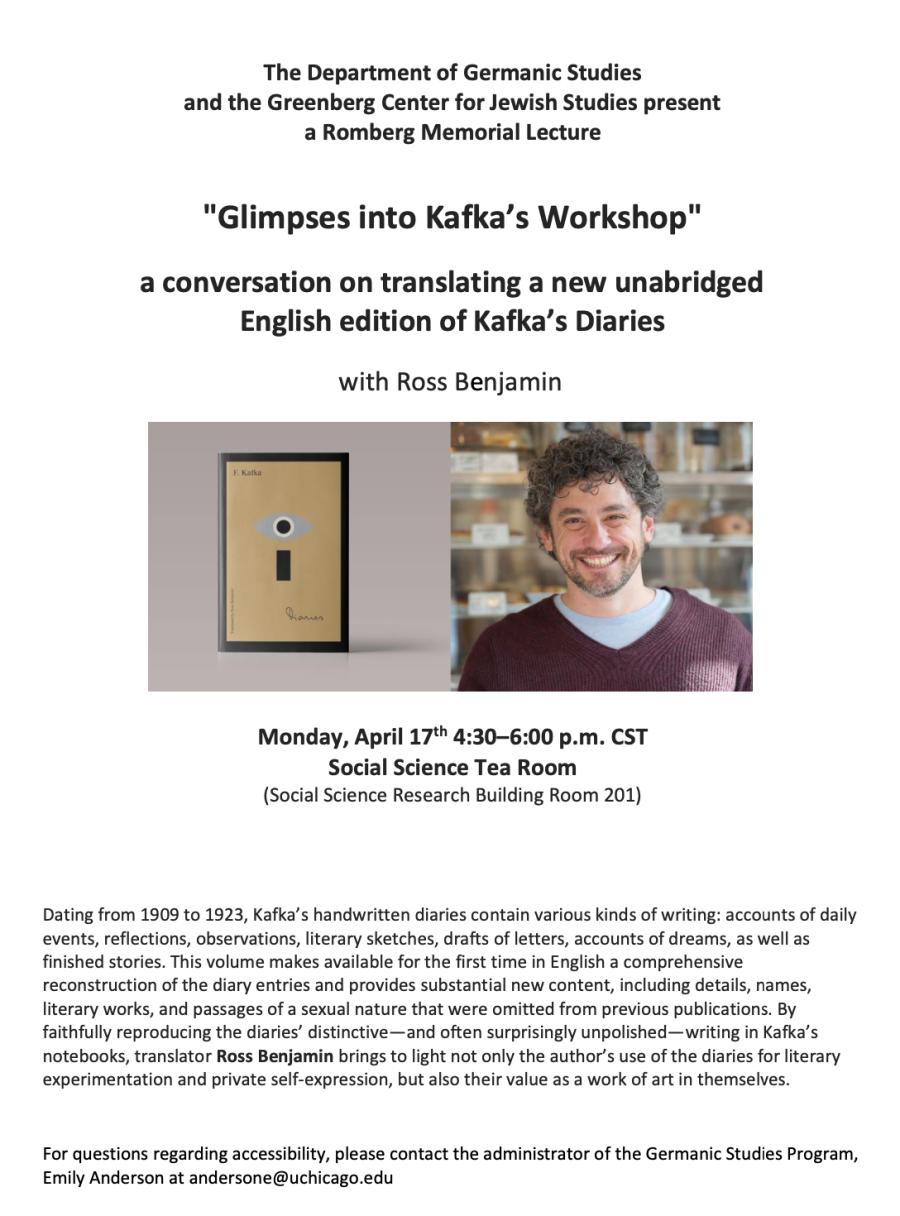The Department of Germanic Studies and the Greenberg Center for Jewish Studies present a Romberg Memorial Lecture
"Glimpses into Kafka’s Workshop"
a conversation on translating a new unabridged English edition of Kafka’s Diaries
with Ross Benjamin
Monday, April 17th 4:30–6:00 p.m. CST
Social Science Tea Room
(Social Science Research Building Room 201)
Dating from 1909 to 1923, Kafka’s handwritten diaries contain various kinds of writing: accounts of daily events, reflections, observations, literary sketches, drafts of letters, accounts of dreams, as well as finished stories. This volume makes available for the first time in English a comprehensive reconstruction of the diary entries and provides substantial new content, including details, names, literary works, and passages of a sexual nature that were omitted from previous publications. By faithfully reproducing the diaries’ distinctive—and often surprisingly unpolished—writing in Kafka’s notebooks, translator Ross Benjamin brings to light not only the author’s use of the diaries for literary experimentation and private self-expression, but also their value as a work of art in themselves.
FRANZ KAFKA was born in 1883 in Prague, where he lived most of his life. During his lifetime, he published only a few short stories, including The Metamorphosis, The Judgment, and The Stoker. He died in 1924, before completing any of his full-length novels. At the end of his life, Kafka asked his lifelong friend and literary executor Max Brod to burn all his unpublished work. Brod overrode those wishes.
ROSS BENJAMIN’s translations include Friedrich Hölderlin’s Hyperion, Joseph Roth’s Job, and Daniel Kehlmann’s You Should Have Left and Tyll. He was awarded the 2010 Helen and Kurt Wolff Translator’s Prize for his rendering of Michael Maar’s Speak, Nabokov, and he received a Guggenheim fellowship for his work on Franz Kafka’s diaries. His translation of The Diaries of Franz Kafka is dramatically different from the version Schocken first published in the 1940s and includes new material that will be available in English for the first time.
For more information, see www.rossmbenjamin.com and his essay on the translation published in The New York Times.
For questions regarding accessibility, please contact the administrator of the Germanic Studies Program, Emily Anderson at andersone@uchicago.edu

